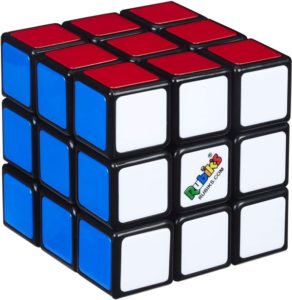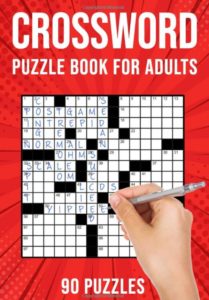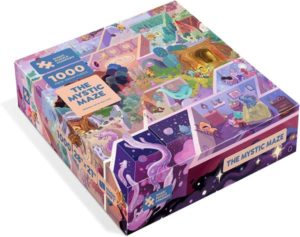Solving Puzzles
Puzzles are a great way to stimulate the mind and keep it active. Puzzles also provide an easy, inexpensive form of entertainment for those who have little time or money to spend on other hobbies. However, puzzles can be much more than just brain games – they even have some other benefits!
Why is Solving Puzzle Considered a Good Hobby?
There is no limit on age when it comes to solving puzzle – anyone can do it! Many seniors across America enjoy solving these types of games because they find them stimulating like crosswords and Sudoku, but more challenging too since there are less clues for each answer than other mental activities offer. The key benefits from puzzling include: sharper memory retention; increased blood flow in the brain; and improved mental health.
First off, it is important to understand what puzzles really are – they’re not merely games that people play for enjoyment! In the most general sense, solving puzzles involves finding solutions based on logical reasoning.
Puzzles come in a wide variety of shapes and sizes; some may require you to arrange objects into a specific pattern as quickly as possible while others might ask you to place items from one category inside another category (ex: fruits vs vegetables). It’s also common for puzzle questions to test spatial perception skills- our brains use spatial awareness to navigate the world around us.
Puzzles are beneficial in a variety of ways because they stimulate your brain, help improve health and just have fun! A puzzle can be stimulating for your brain by challenging you with new puzzles that force you to think differently than what is expected or required from everyday life. It’s also important to note that solving puzzles keep our brains feeling young – which is something we all want as time goes on!
Puzzles encourage problem-solving skills which aids in improving overall cognitive function. This means it’s easier for one person who solves puzzle daily versus another person with no experience at all when faced with difficult situations like math problems or remembering directions while driving down an unfamiliar road.
11 Common Puzzles Types
Following are a few types of puzzle we are often see:
Cryptic
These are very common puzzles and the ones we can see in an escape room. The goal is to find a phrase or a solution to a problem using clever and logical techniques. They are designed to be solved by a single person (some of them), and they can be very simple or complex.
E.g. Cryptic Crosswords
You thought you were done with crosswords? Cryptic Crosswords is a collection of forty cryptic puzzles that are enjoyable, original, and quick. These puzzles have been revised to include clues which add depth for even the most seasoned cryptic solver. If fun, fast challenges sound like a great way to spend your winter nights or weekends away in Quebec City with friends — then this book is for you! And get an extra challenge out of the deal by endeavoring to solve the mystery puzzle at the end of each chapter.
Mechanical
The best example of this puzzle is Rubik’s Cube. It is an extremely common type you can see today. They come in various options but all of them require trial and error to solve it. You will need to push move and connect pieces in order to solve it.
E.g. Rubik’s Cube 3 x 3

This Rubik’s Cube game is perfect for anyone trying to find a challenging puzzle that doesn’t involve sitting in front of your computer screen. Put some hours into solving the cube, and you’ll be left with a rewarding and satisfying feeling. The 7-Step Solution Guide will help to get even those who thought it might have been too hard before back on track.
Logic
Logic puzzles have a grid of some kind that must be filled properly. There are rules and the solution is usually completely unique. These puzzles may come with a partially filled grid, which makes the solution easier to find.
Trivia
As you may know already, trivia puzzles are based on trivia on any topic and area in the world. They can be found as a part of escape room puzzles, and they may be extremely difficult unless you are familiar with the niche.
Math
Math puzzles are based on math, obviously. They use algorithms (not simple ones), and the main purpose is to test the math skills of a student. There are many tricks and tips you can use but in general, you need to be proficient with math to solve one.
Riddles
Riddles are based on a piece of text containing the question. You need the answer, which is hard and can come in multiple options. There is some logic involved in all of this, but not necessarily. Some riddles are extremely complicated to solve, and there is no common logic present. Being proficient with a particular niche may help you sometimes.
Pattern Guessing
An example of this puzzle is ‘’Find the next number in line 1, 2, 8, 9…’’. They are very old puzzles, and they are very common. The goal is to deduce the outcome from the provided numbers or letters and to use logic or math to find it without an error.
Word Puzzle
Word puzzles are common, and you have been playing with them the entire life. The best example is a crossword. Keep in mind that some of these puzzles may have a mathematical nature and foundation.

The brain cells are calling for your attention! Stay sharp and entertained with this challenging game of Crossword Puzzles. This 90-page book has everything you need from puzzles, answers, sections to read, and fun facts. Keep the grid penciled in as you flip through different clues to piece together phrases with corners or whole blocks filled. The perfect gift for any intellectually minded individual who enjoys a good challenge! Get ready to flex those synapses while puzzling out these word challenges one letter at a time.
Jigsaw Puzzle
A jigsaw puzzle is a type of picture that has been cut into many pieces and can be reassembled to form the whole image. Doing this requires concentration, problem-solving skills and patience. The benefits of doing jigsaw puzzles include increased problem-solving skills and concentration as well as mental stimulation because it engages both sides of your brain at once – the logical left side that deals with numbers and symbols; and creative right side which loves images.
E.g. The Mystic Maze

The Mystic Maze is a 1000-piece jigsaw puzzle that’s beautiful, full of detail, and will leave you breathless when you finish it. The twist ending includes the use of illusions and magic to astonish and delight you. With over 50 easter eggs only visible at this size, solving this challenging puzzle is where the fun begins! There’s no loose puzzle dust with every piece made from PET material for safe finger sliding and easy cleanup without powders. This beautifully detailed new masterpiece has been called “the most-funded and most-backed puzzle in Kickstarter history” by WIRED magazine due to its success on Kickstarter raising over $3M from more than 60k backers so far.
Tangram
A Tangram uses 7 pieces to form geometric shapes by following certain rules as well as using 2 more “empty” spaces on the board where you will need to draw the shape before solving it.
Escape Room
Escape rooms are physical puzzles that provide a team of participants with the challenge to escape from a contained room. Participants must work together and use elements inside the room or puzzle in order to solve their way out within an allotted time limit, usually one hour. The first person who goes through all the steps needed to escape is considered “The Escapist.” Players may choose not only how they approach these challenges but also what kind of danger they wish to encounter, be it mental or physical.
Common Questions about Puzzle Hobby
Are puzzles a hobby?
Puzzles are a hobby. You can find them in books or on the internet. Sometimes you have to try many ways before it works but sometimes it’s easy to solve!
What skills do puzzles develop?
Puzzles develop logical thinking and problem solving skills. They are mentally demanding!
How long does it take to complete a puzzle?
Some puzzles can be completed in an hour, others might take days or even weeks if they’re very difficult. It depends on the person. Some people make many mistakes while working on them but other people don’t.
Are puzzles good for anxiety?
Puzzles are good for anxiety because they take your mind off of things. You forget about the bad and focus on the fun!
When do puzzles work best?
Puzzles work best during spare time or when you’re bored. It’s a great way to pass time without getting distracted by other activities that might be less productive than putting together a puzzle!
Are puzzles stressful?
Puzzles can be stressful if you are not patient because it takes a long time. Some are easy on your brain like crossword with a topic you love or simple jigsaw puzzles.
What is the best type of puzzle to complete?
The best kind of puzzles for me are ones that require problem solving and logic skills! They’re challenging, but so rewarding when you figure them out. Some people hate completing easy jigsaw puzzles where everything is already in place.
Are jigsaw puzzles good for mental health?
I think jigsaw puzzles are good for mental health because they take your mind off of things. You forget about the bad and focus on having fun!
Do puzzles help with ADHD?
Puzzles can be very helpful for people who have ADHD because they’re not too distracting but still take up a lot of mental energy. It’s good to try something that calms you down and puzzles might really help.
Losing oneself in a game or puzzle is optimal for individuals with ADHD. I’d guess that these types of activities, which can provide short-term rewards at any point in time, may especially appeal to those suffering from this disorder due to their ability to hyperfocus.
Do puzzles make you smarter?
Puzzles do not make you smarter, but they are mentally demanding so if you’re solving them often it will help increase your brain power!
Are puzzles a good way to pass the time?
Yes, I think puzzles are a great way to pass time. They keep one busy and focused while allowing for breaks at any point in time.
Sometimes it’s nice just sitting down with a puzzle in front of me while watching TV or listening to music. It keeps my brain thinking so I don’t become distracted from what is going on all around me which will help keep my ADHD under control.
What is the best way to plan out a puzzle?
The best way to plan out a puzzle is by picking one that you really enjoy. I personally don’t like jigsaw puzzles very much, but those are easy for me so it might not be as fun if they’re too challenging or easy on your brain.
Can anyone complete a puzzle?
I think many people can complete puzzles, although some might be too difficult. It depends on the person and how well they know their skills! Everyone has different strengths which is why there are so many types of puzzles out there. Is it fun to do jigsaw puzzles with someone else? I don’t like doing jigsaw puzzles with other people because I don’t like when they touch my things!
Final Thoughts
Puzzles are a hobby and you might choose to do them. They have many benefits such as increasing your problem-solving skills and challenging your brain!
Sometimes they can be frustrating but if you keep trying there is always an answer somewhere in the puzzle.
It takes patience, focus, concentration, and sometimes logic skills to complete them which means they are good for your brain! You can do them in spare time.
If you have ADHD it is a great way to calm down, but if they’re too easy or difficult that might not be as rewarding and fun because puzzles should be challenging. Are jigsaw puzzles the best type of puzzle?
Jigsaw Puzzles can be very helpful for people who have Attention Deficit Disorder (ADD/ADHD) because they offer an activity with long-term rewards at any point in time without being distracting like video games or other activities which may cause one’s focus to shift quickly from place to place.
I’d guess that these types of activities, which provide short-term rewards at random intervals throughout the process, may especially appeal to those suffering from this disorder due to their ability to hyperfocus on the task at hand.